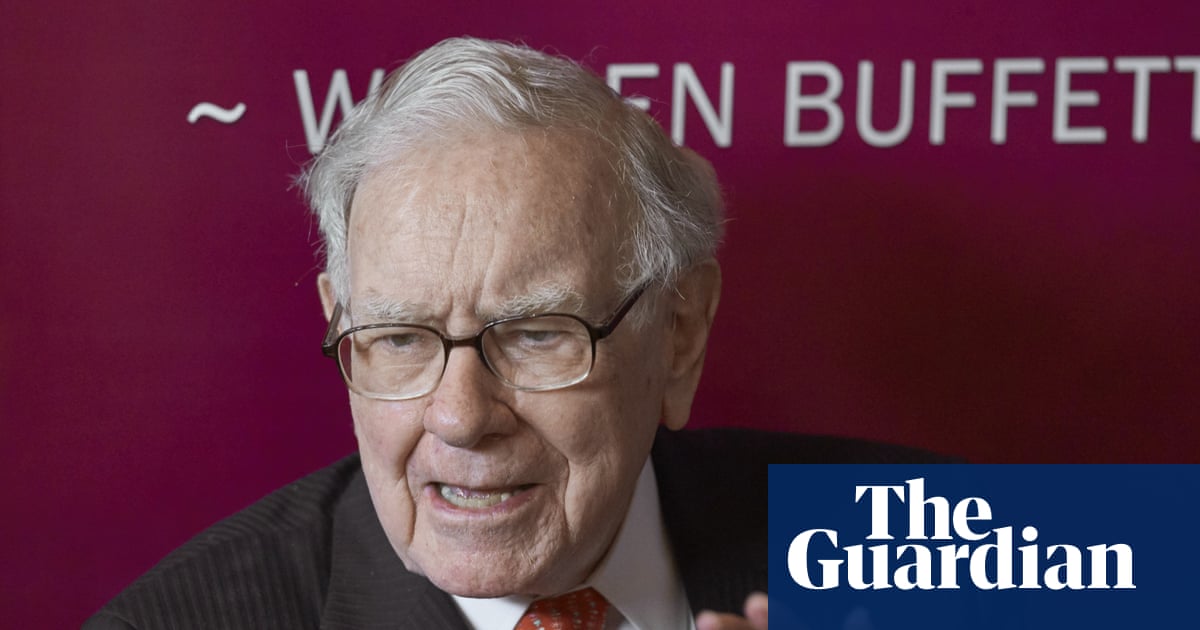GSK announces surprise change of CEO
UK pharmaceuticals company GSK has surprised the City by announcing a change of chief executive.
Emma Walmsley will step down as CEO after nine years at the helm, and will be replaced by company insider Luke Miels.
Miels is currently GSK’s chief commercial officer, but has now been crowned as “CEO Designate”. He will become CEO on 1st January 2026.
GSK tells investors:
Luke is a highly respected, experienced global biopharma leader, having worked at senior levels in the US, Europe and Asia, at AstraZeneca, Roche and Sanofi-Aventis, prior to joining GSK.
This experience, and significant contribution to GSK, mean he is exceptionally well-qualified to lead the company, and to deliver the patient and shareholder value inherent in the company’s future ambitions.
Even so, this change at the top is a surprise. GSK says Miels’s appointment “reflects effective long-term succession planning by the Board and Emma”, and that it considered a range of candidates, internal and external.
During her nine years in charge, Walmsley has been conducting a wide-ranging overhaul of GSK, including spinning off its consumer health business into a new company, Haleon.
Key events Show key events only Please turn on JavaScript to use this feature
Interactive investor: Walmsley's leadership a success, share price less so
Victoria Scholar, head of investment at interactive investor, says the news that Dame Emma Walmsley is stepping down as CEO of GSK has taken investors by surprise.
The 3.5% jump in GSK’s share price this morning suggests the City is ‘excited’ by the appointment of chief commercial officer Luke Miels as her replacement, Scholar adds:
Walmsley has been at the helm since 1st April 2017 and her leadership has largely been judged as a success story. She navigated GSK through the challenges of the pandemic and successfully delivered its consumer health division’s spin-off into a standalone company, Haleon. Walmsley has also been in charge during a stretch when GSK has achieved a number of drug breakthroughs such as Arexvy (an RSV vaccine) and she has endeavoured to make AI and cutting edge technology central to GSK’s strategy. She also became the first woman to become CEO of a pharma giant.
However Walmsley has also faced a number of challenges not least with US litigation over its heartburn drug Zantac and an mRNA patent dispute with Pfizer and BioNTech. She also faced activist investor opposition from US hedge fund Elliott Management in 2021.
While there’s a vast amount to cheer when it comes to Walmsley’s leadership, shares haven’t performed so well, down around 10% since she took up the top job. And the stock is reacting positively today, suggesting investors are excited by the change in leadership.
Saxo: GSK looks 'well positioned'
Neil Wilson, UK investor strategist at Saxo Markets, reckons Emma Walmsley is handing GSK on in pretty good shape.
He says:
Emma Walmsley will step down as CEO at GSK after nine years in charge.
Shares rose on the news by over 3% - Walmsley copped flak for years, but the stock has traded sideways for two decades and things have been improving. The business looks well positioned after some notable progress in the year or so, particularly the spin-off of Haleon and strong cancer drug sales. Tariff uncertainty should start clearing, too
Analyst: End of an era as Dame Emma Walmsley calls time as CEO
Emma Walmsley’s departure as CEO of GSK at the end of the year will be the “end of an era”, says Derren Nathan, head of equity research at Hargreaves Lansdown.
Nathan explains:
“The first ever female CEO of a major pharmaceutical company, Dame Emma Walmsley, is set to hand over GSK’s reins on New Year’s Day 2026. One of her key achievements was the demerger of Haleon, the company behind consumer health brands such as Beechams. That not just strengthened GSK’s balance sheet but also sharpened the group’s focus on speciality medicines and vaccines. There’s an exciting pipeline ahead and, this year alone, GSK’s on track for five major regulatory approvals. Her reign also saw a line drawn in the sand in the Zantac litigation case, removing a key financial uncertainty.
But, Nathan adds, GSK’s share price performance has been lacklustre on Walmsley’s watch:
He points out that its stock trades at a significant discount to the peer group, adding:
Although her record of delivering on financial guidance has been strong, the company’s growth rates remain stuck in single digit territory. There’s a $40 billion sales target in place for 2031, but analyst forecasts suggest some doubts still linger. It will be down to the leadership of CEO designate Luke Miels to convince the market.
He’s been handed a business in good shape and, if he can deliver on this goal, shareholders stand to be well rewarded. The market’s backing him for now, with a 3.5% share price increase this morning, but there’s a long road ahead. As Emma Walmsley’s relationship with the City has shown, it can be a demanding audience.”
Analyst: AstraZeneca’s US listing aims to fuel next decade of growth
AstraZeneca’s plan to list on the US stock market is an attempt to fuel its next decade of growth, says Lale Akoner, global market analyst at eToro:
“AstraZeneca is stepping onto Wall Street with a new US share listing, giving the company more visibility in the world’s largest healthcare market while keeping its London home. The move is aimed to attract a wider base of investors as Astra pursues strong growth over the next decade. By broadening its investor reach in the US, Astra is looking to secure the capital and visibility needed to fund its next wave of medicines and hit its long-term sales targets.
Importantly, this dual listing isn’t about shifting away from London but securing a truly global platform. Backed by a blockbuster cancer portfolio and a pipeline of promising new treatments, we think AstraZeneca is well positioned for steady earnings growth. With sights set on reaching $80bn in sales by 2030, the US listing strengthens its ability to deliver for both patients and shareholders.”
AstraZeneca’s shares are up too – gaining 1% in London, as investors react to its decision to create a direct listing on the New York stock exchange.
That listing change should make it easier for US capital to move into AstraZeneca.
GSK shares rise after CEO shake-up
The City is giving a thumbs-up to the change of CEO at GSK.
GSK’s shares are the top riser on the FTSE 100 blue-chip share index at the start of trading, up 3.5%.
AstraZeneca shakes up stock market listing structure
GSK’s pharmaceuticals rival, AstraZeneca, also has news this morning.
AstraZeneca has shaken up its stock market listing structure, and will now have a direct listing on the New York stock market, as well as in London and Stockholm.
Those shares will replace its existing American Depositary Receipts (ADR) which track AstraZeneca’s share price.
However, AstraZeneca will keep its status as a UK listed, headquartered and tax resident company – it’s not joining the ranks of companies quitting London for Wall Street.
Michel Demaré, chair of AstraZeneca, says the move will create a ‘global listing structure’:
“Today we set out our proposed harmonised listing structure which will support our long-term strategy for sustainable growth, while remaining headquartered in the UK and listed in London, Stockholm and New York.
Enabling a global listing structure will allow us to reach a broader mix of global investors and will make it even more attractive for all our shareholders to have the opportunity to participate in AstraZeneca’s exciting future.”
Walmsley’s departure comes three years after GSK fought off pressure from activist investor Elliott Management for a change of leadership.
Back in 2021, Elliott demanded new board directors with deep pharmaceutical and consumer health expertise, and a process to select “the best executive leadership” for both GSK and the consumer healthcare division it span off (to become FTSE 100 -listed Haleon).
Dame Emma Walmsley will step down from the GSK board on 31st December, when Luke Miels takes her CEO seat.
But she will remain with the company until her notice period ends on 30 September 2026, which means another year of salary, pension and benefits, plus the possibility of a bonus for the 2025 financial year.
And, importantly for the Walmsley finances, she’ll be treated as “a good leaver”, meaning she’ll still receive awards under GSK’s performance share plan.
Walmsley: It's the right moment for new leadership
Dame Emma Walmsley says she is off to begin “new adventure”, once she steps down as GSK’s CEO at the end of the year.
“2026 is a pivotal year for GSK to define its path for the decade ahead, and I believe the right moment for new leadership. As CEO, you hope to leave the company you love stronger than you found it and prepare for seamless succession.
I’m proud to have done both - and to have created Haleon, a new world-leader in consumer health. Today, GSK is a biopharma innovator, with far stronger momentum and prospects than nine years ago. Most importantly, the inspiring people in our labs, factories, and markets worldwide are delivering innovation that matters to get ahead of disease.
I know Luke will lead them brilliantly to even greater impact for patients. I look forward to supporting this transition and to cheering GSK’s future success as I begin my own new adventures.”
GSK announces surprise change of CEO
UK pharmaceuticals company GSK has surprised the City by announcing a change of chief executive.
Emma Walmsley will step down as CEO after nine years at the helm, and will be replaced by company insider Luke Miels.
Miels is currently GSK’s chief commercial officer, but has now been crowned as “CEO Designate”. He will become CEO on 1st January 2026.
GSK tells investors:
Luke is a highly respected, experienced global biopharma leader, having worked at senior levels in the US, Europe and Asia, at AstraZeneca, Roche and Sanofi-Aventis, prior to joining GSK.
This experience, and significant contribution to GSK, mean he is exceptionally well-qualified to lead the company, and to deliver the patient and shareholder value inherent in the company’s future ambitions.
Even so, this change at the top is a surprise. GSK says Miels’s appointment “reflects effective long-term succession planning by the Board and Emma”, and that it considered a range of candidates, internal and external.
During her nine years in charge, Walmsley has been conducting a wide-ranging overhaul of GSK, including spinning off its consumer health business into a new company, Haleon.
‘Moral hazard’ fears over JLR’s £1.5bn government loan guarante
Good morning, and welcome to our rolling coverage of business, the financial markets, and the world economy.
There’s relief in the West Midlands this morning, after the government agreed to underwrite a £1.5bn loan guarantee to Jaguar Land Rover (JLR) to help the carmaker, and its suppliers, ride out a disruptive cyber-attack.
The loan guarantee was announced on Saturday night, after ministers also assesssed other options such as becoming a ‘buyer of last resort’ for JLR’s suppliers, or a furlough scheme for auto workers.
The business secretary, Peter Kyle, said it will save jobs dependent on JLR’s factories in Britain:
“This cyber-attack was not only an assault on an iconic British brand, but on our world-leading automotive sector and the men and women whose livelihoods depend on it.
“Following our decisive action, this loan guarantee will help support the supply chain and protect skilled jobs in the West Midlands, Merseyside and throughout the UK.”
But there are also concerns that the loan creates a ‘moral hazard’ problem – potentially taking pressure off UK companies to protect themselves from the threat of hackers through insurance or robust security.
Liam Byrne, the Labour chair of the House of Commons business and trade select committee, has warned about the arrangement’s risks.
Byrne cationed (via the Financial Times):
“Going forward, there is a real risk of moral hazard.”
“As a country we’re going to have to remake the way the state and market work together to try and safeguard British industry against these kinds of risks.”
However…. even with this loan guarantee, JLR still faces massive disruption. The hack has frozen car production for a month (so far…), creating turmoil across its supply chain – particularly in the West Midlands surrounding the company’s headquarters in Gaydon and the Solihull factory,
There were reports earlier this month that JLR had “failed to finalise” a cyber insurance deal before being struck by a cyber attack earlier this month, which rather sharpens the moral hazard question…..
…. especially as the company is profitable, and owned by India’s Tata Motors.
The agenda
-
9.30am BST: Bank of England mortgage approvals and credit data
-
1pm BST: Dave Ramsden: panellist at the ECB ‘Inflation: drivers and dynamics 2025 conference’ in Frankfurt.
-
3pm BST: Dallas Fed manufacturing index
-
3pm BST: US pending home sales

 3 months ago
60
3 months ago
60

















































